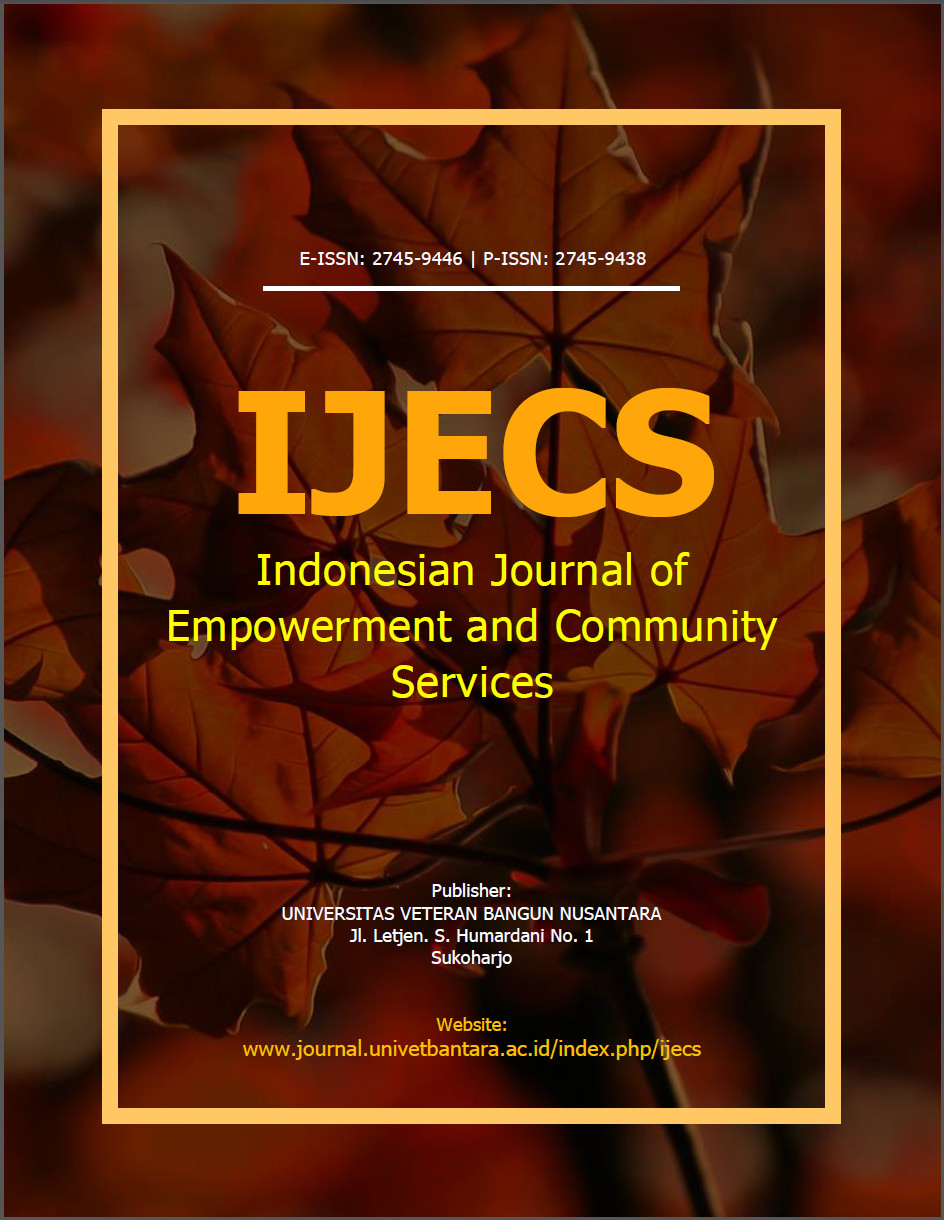Digital Madrasah: Empowering Technology Literacy for Teachers
DOI:
https://doi.org/10.32585/ijecs.v6i1.6216Abstract
The digital transformation of madrasahs has become imperative in the current digital era to address the evolving challenges of educational relevance. The digitalization process in madrasahs, particularly at MAN 3 Tanah Datar, encounters several obstacles, including limitations in infrastructure and human resources. Through the Science and Technology Literacy initiative spearheaded by the Faculty of Science and Technology at UIN Imam Bonjol Padang, this community service activity aims to strengthen technology literacy among teachers at MAN 3 Tanah Datar. The initiative includes training on the use of digital media creation and assessment applications, such as Canva, Quizizz, and Wordwall. The methodology employed encompasses three phases: pre-implementation, implementation, and post-implementation. The outcomes indicate that the training successfully enhanced teachers' technological skills, which in turn contributed to creativity and innovation in teaching and learning processes. Monitoring and evaluation activities showed that the use of Canva, Wordwall, and Quizizz at MAN 3 Tanah Datar increased student engagement and motivation, but there is still a need for media adaptation to accommodate a variety of learning styles. Continued efforts in digitalization are necessary to realize the full potential of a digital madrasah. Technology-based training programs like these are expected to bolster the madrasah's human resources, equipping them to meet global challenges in the digital age.
Keywords: digital madrasah; technology literacy; teacher
Downloads
Downloads
Published
How to Cite
Issue
Section
License
Copyright (c) 2025 Subhan Ajrin Sudirman, Muhammad Naufan Rizqullah, Novia Lestari, Yuharnida Yuharnida, Bagus Pribadi, Rahman Pranovri Putra

This work is licensed under a Creative Commons Attribution-ShareAlike 4.0 International License.
Authors who publish with the IJECS: Indonesian Journal of Empowerment and Community Services agree to the following terms:
- Authors retain copyright and grant the journal the right of first publication with the work simultaneously licensed under a Creative Commons Attribution License (CC BY-SA 4.0) that allows others to share the work with an acknowledgment of the work's authorship and initial publication in this journal.
- Authors are able to enter into separate, additional contractual arrangements for the non-exclusive distribution of the journal's published version of the work (e.g., post it to an institutional repository or publish it in a book), with an acknowledgment of its initial publication in this journal.
- Authors are permitted and encouraged to post their work online (e.g., in institutional repositories or on their website) prior to and during the submission process, as it can lead to productive exchanges, as well as earlier and greater citation of published work.





